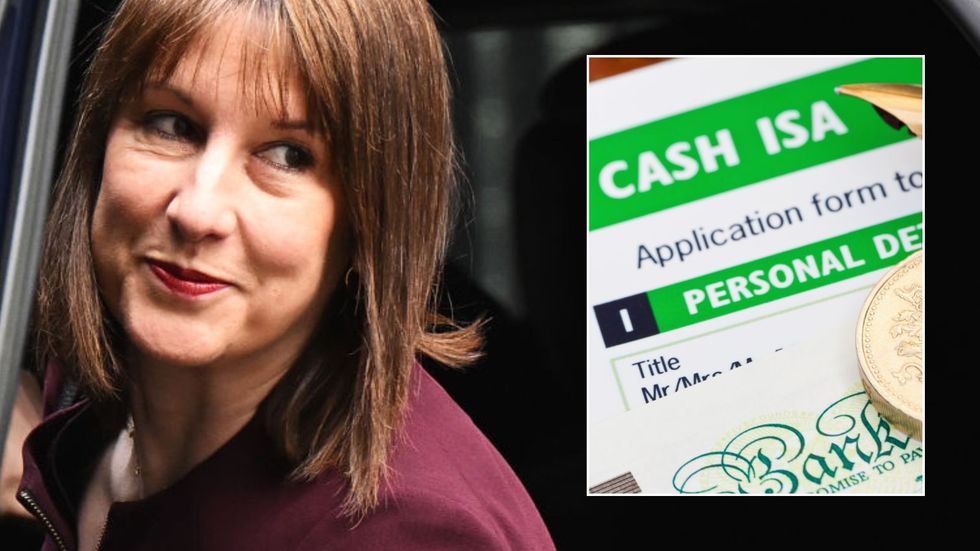The Treasury has been privately discussing a more moderate reduction to the annual cash ISA allowance, settling on £12,000 rather than the initially proposed £10,000 cap, according to individuals familiar with the deliberations.
Rachel Reeves appears to be softening her stance on the controversial reforms after fierce opposition from building societies, who warned that dramatic cuts could disrupt mortgage lending across Britain.
The modified proposal would still represent a significant reduction from the current £20,000 limit but offers a compromise following weeks of intense lobbying.
Sources indicate the Chancellor has not entirely abandoned the possibility of halving the allowance, though the £12,000 figure has gained traction within Treasury circles as a more palatable option that might achieve her objectives while addressing industry concerns.
Building societies mounted a vigorous defence of the existing system, arguing that cash ISAs provide essential funding for mortgage lending operations.
The sector warned that constraining these deposits could force lenders to increase borrowing costs, ultimately affecting homeowners through higher mortgage rates.
Andrew Gall, head of savings at the Building Societies Association, said: “We support efforts to help more people to invest and grow their wealth, especially in the UK, but cutting the cash ISA limit simply won’t achieve this.”
He added: “It would undermine one of Britain’s most successful savings products and a stepping stone that has helped millions to build financial resilience and confidence to invest for their future.”

The association’s research revealed that approximately 40 per cent of cash ISA balances are held by building societies, underscoring their reliance on these deposits for lending activities.
Investment platforms have mounted a counter-offensive, with IG urging the Chancellor to proceed with the original £10,000 threshold.
The London-based trading platform’s research suggests approximately 2.8 million individuals deposit more than £10,000 annually into cash ISAs, with nearly 30 per cent indicating they would consider equity investments if the limit were reduced.
Michael Healy, managing director of IG, said: “The Chancellor is absolutely right to tackle the UK’s overreliance on savings, starting with a product that does nothing for long-term wealth creation.”
LATEST DEVELOPMENTS
- Coventry Building Society warns savers amid Rachel Reeves ISA tax raid rumours: ‘Time to act!’
- ISA tax raid in Budget risks ‘holding savers to ransom’, Rachel Reeves warned
- Rachel Reeves told to avoid ‘scary’ savings tax raid as ISA allowance could be HALVED

He dismissed building society concerns as “largely overstated”, noting that potential redirected funds would represent merely 0.4 per cent of building societies’ total retail deposits.
“Suggestions that it could threaten the mortgage market are simply scaremongering. The reality is that this reform is sensible, proportionate and long overdue,” Mr Healy said.
The Treasury is exploring voluntary modifications to stocks and shares ISA products, aiming to channel more funds towards London-listed equities without imposing mandatory requirements.
Officials are discussing pre-packaged ISA options that would direct roughly 25 per cent of investments towards UK equities, with the balance available for international stocks, according to those briefed on the proposals.
One Treasury source said the Government “wants a UK element and ideally that would be voluntary” for the sector, suggesting a preference for market-led solutions rather than regulatory mandates.
These discussions follow the abandonment of Jeremy Hunt’s “British ISA” proposal, which Labour scrapped to prevent excessive complexity in the savings framework.
The voluntary approach represents an attempt to boost domestic equity investment while avoiding the administrative burden of mandatory allocation requirements.
Government data shows that typical cash ISA contributions averaged £6,993 during the 2023/2024 tax year, suggesting the majority of savers would remain unaffected by either proposed threshold.

The Treasury select committee cautioned last month that reducing the cash ISA allowance was unlikely to motivate greater equity market participation.
It recommended instead that ministers prioritise financial education initiatives.
Research commissioned by AJ Bell found just one in five savers would increase UK stock market investments if cash ISA limits were reduced, with over half indicating they would simply redirect funds to taxable savings accounts.
Cash ISAs currently hold an estimated £360billion in deposits, making them Britain’s most popular tax-free savings vehicle, significantly outpacing stocks and shares ISAs in terms of public adoption.
Our Standards:
The GB News Editorial Charter







Follow